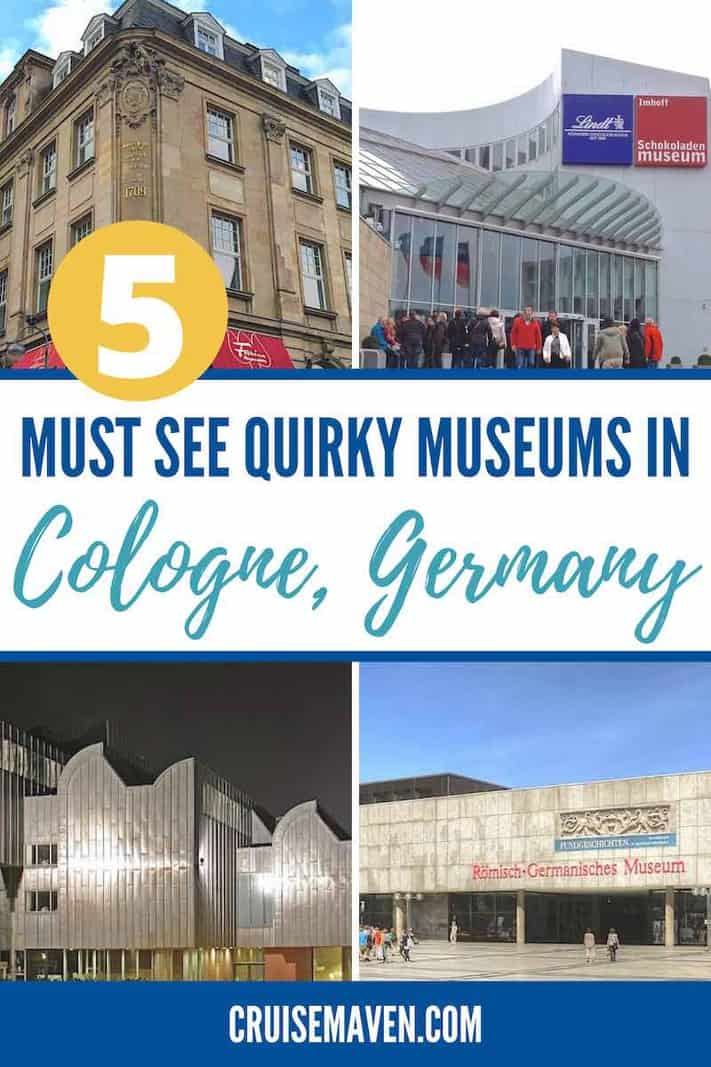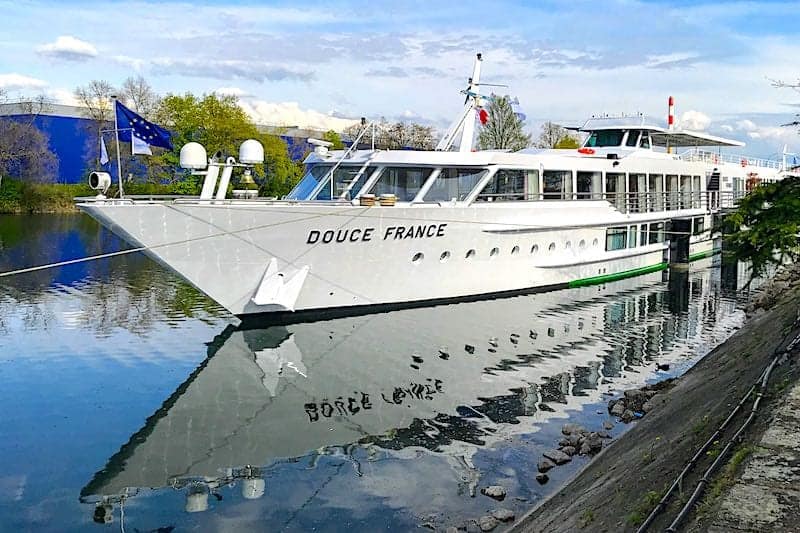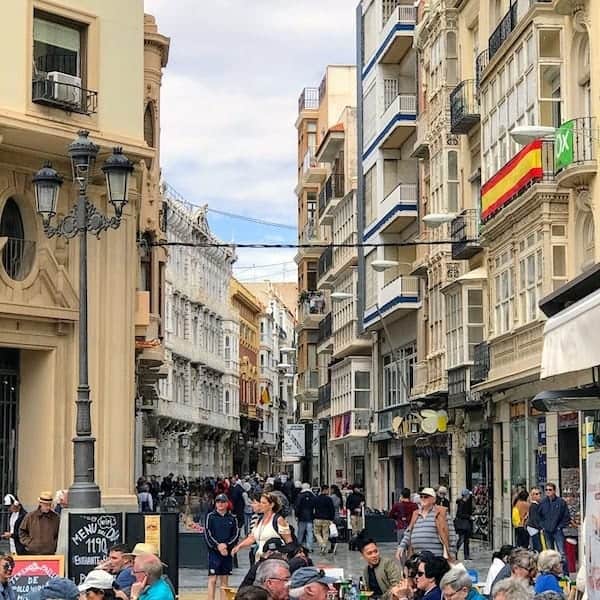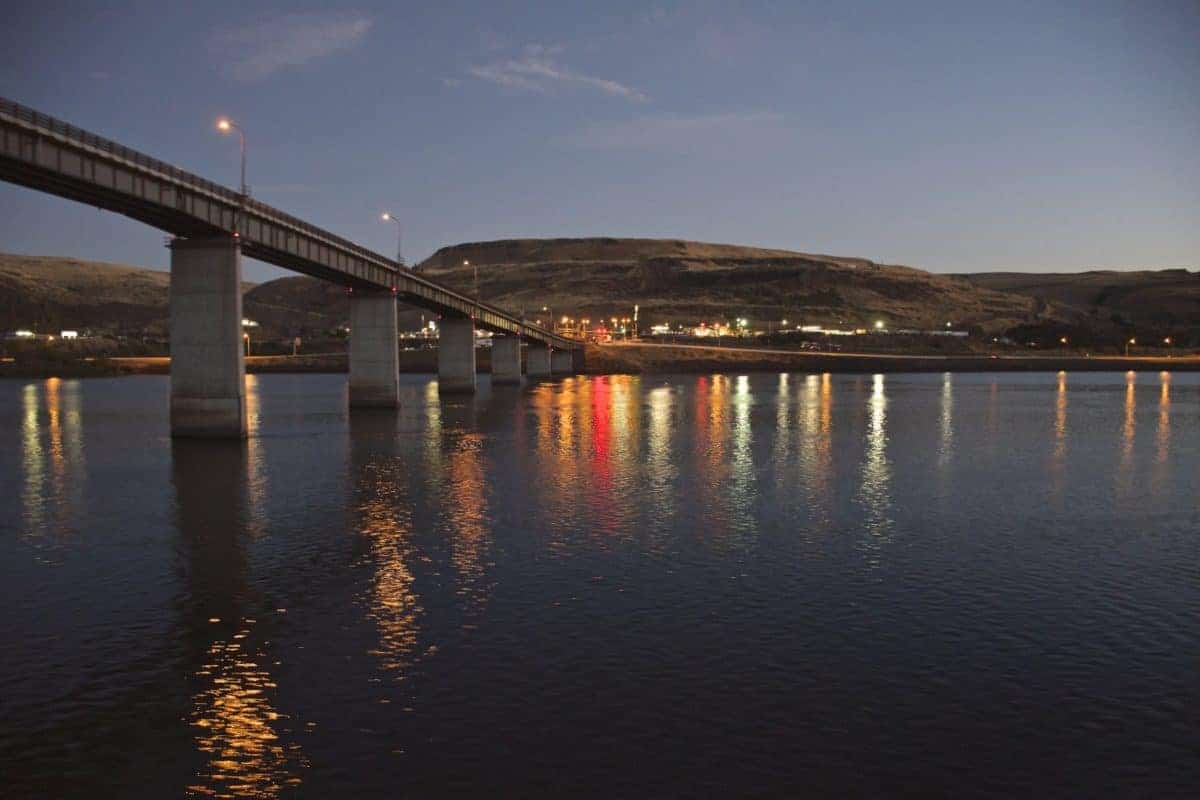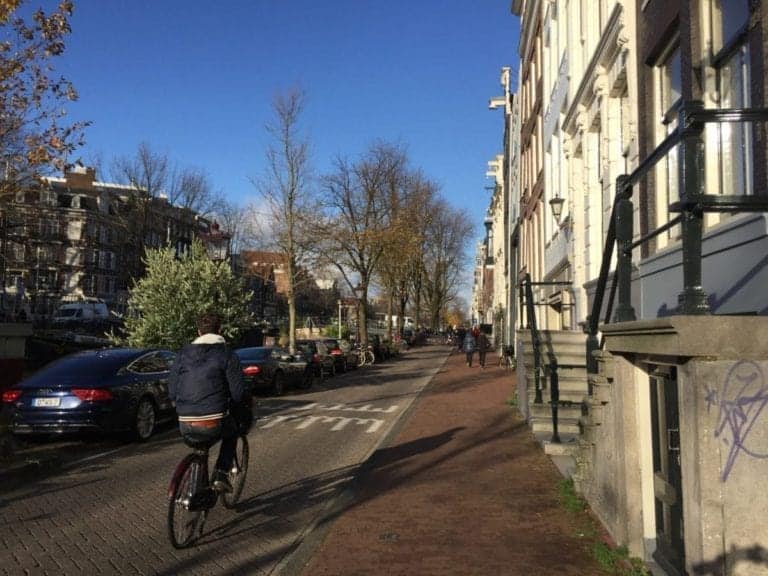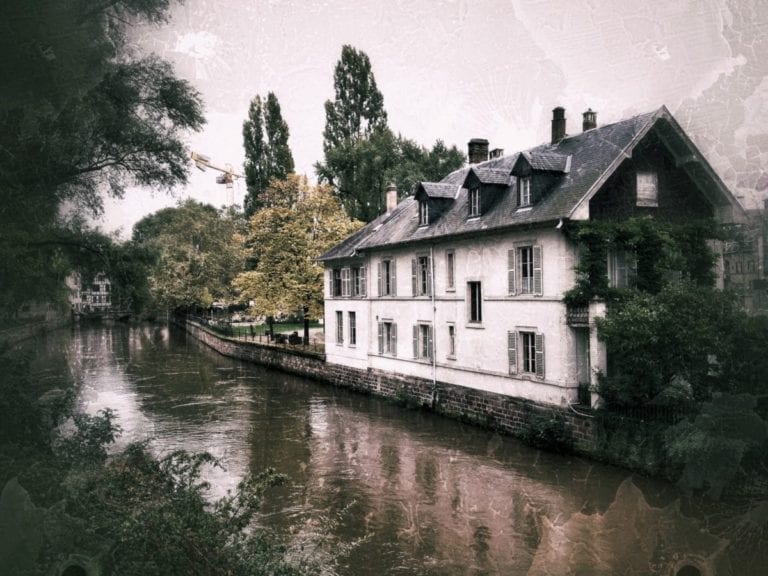Quirky Museums in Cologne You Don’t Want to Miss
One of my favorite river cruise itineraries is a Rhine River cruise through Germany. There’s a lot of reasons why I get excited when we dock in Cologne, Germany. Tasting some great local food and beer and visiting some really off-beat museums in Cologne are a must-do.
This bustling European cosmopolitan center is filled with ancient history, fantastic food and dotted with busy cafés.
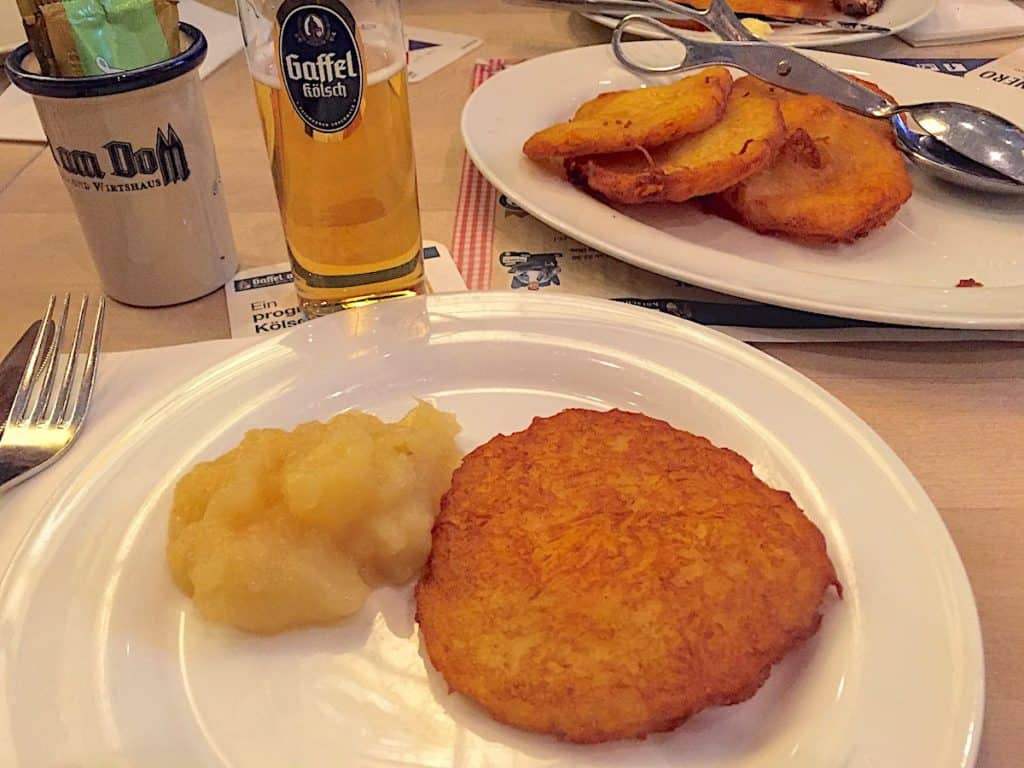
But don’t overlook the museums. I’ve found several museums in Cologne that are, well, slightly unusual.
Cologne’s city center, once an important Roman cultural center, (yes, the Romans were everywhere!) is within easy walking distance from your river cruise ship. Every time I’m on an Upper Rhine river cruise, I love to revisit these interesting, important and even delicious museums in Cologne.
Quirky Museums in Cologne That You Should Visit
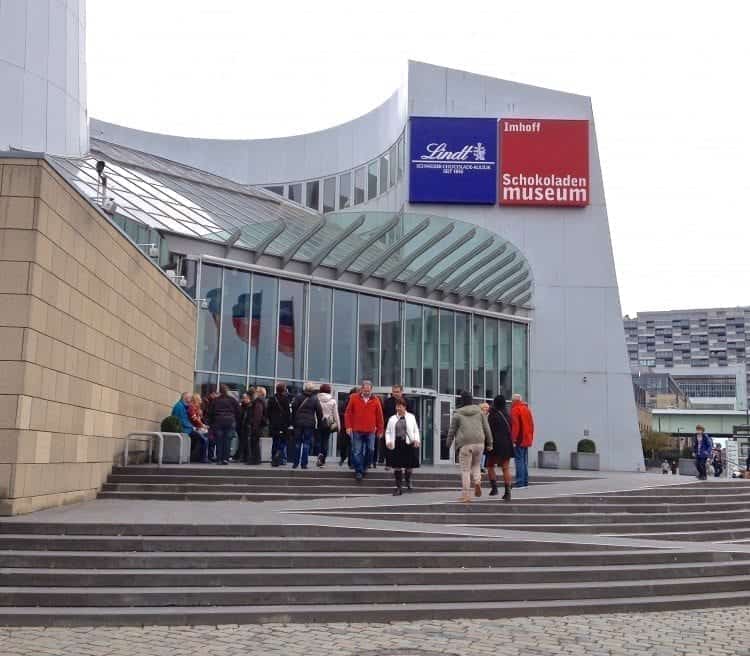
The Lindt Chocolate Museum – My Favorite Museum in Cologne!
Just a short, 5 minute walk from the river boat dock is the Lindt Chocolate Museum, Schokoladenmuseum. It’s the oddly-shaped metal colored building that overlooks the harbor. And some of the best chocolate concoctions you’ll ever taste!
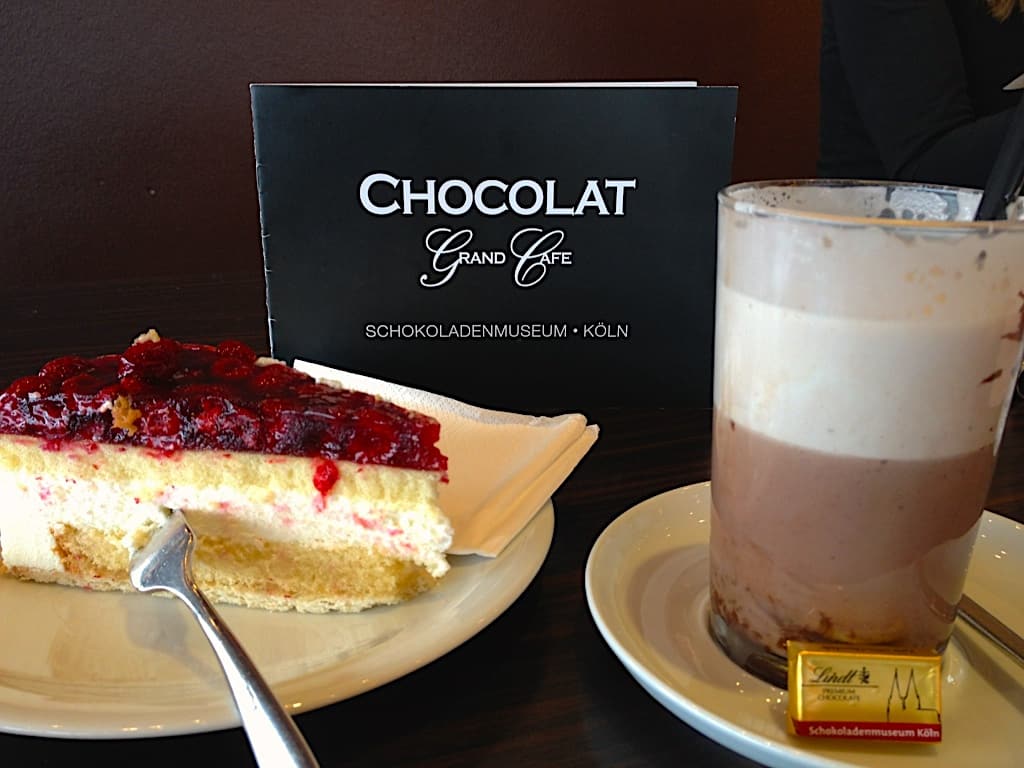
There are three delightful components in the museum; the chocolate museum itself which features a history of chocolate and antique chocolate-making related equipment, a chocolate bakery and beverage restaurant and of course, a huge retail shop with chocolate for sale from all over the world.
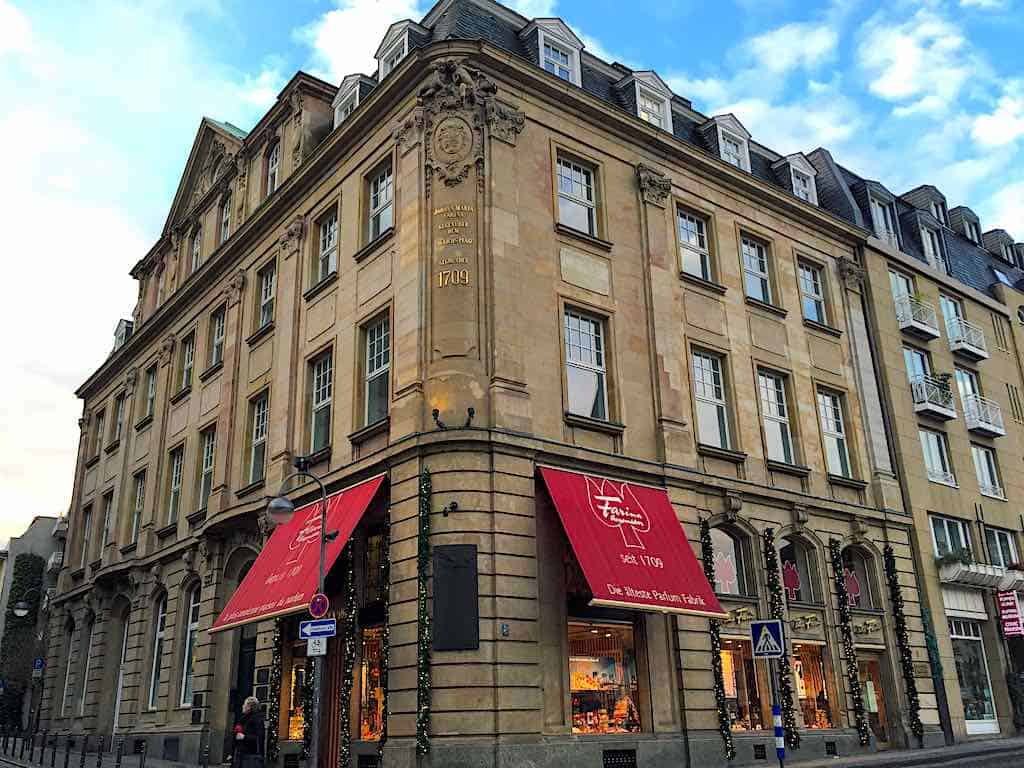
The Fragrance Museum
Just across from where the river ships dock in the old town, is the Fragrance Museum. It’s located in the building where in 1709, John Farina (actually an Italian-turned-German, named Giovanni Maria Farina) created Eau de Cologne, a fragrance he named for his beloved city. I can almost guarantee that you’ll buy a bottle of the citrus-y and aromatic 1709 Original Eau de Cologne.
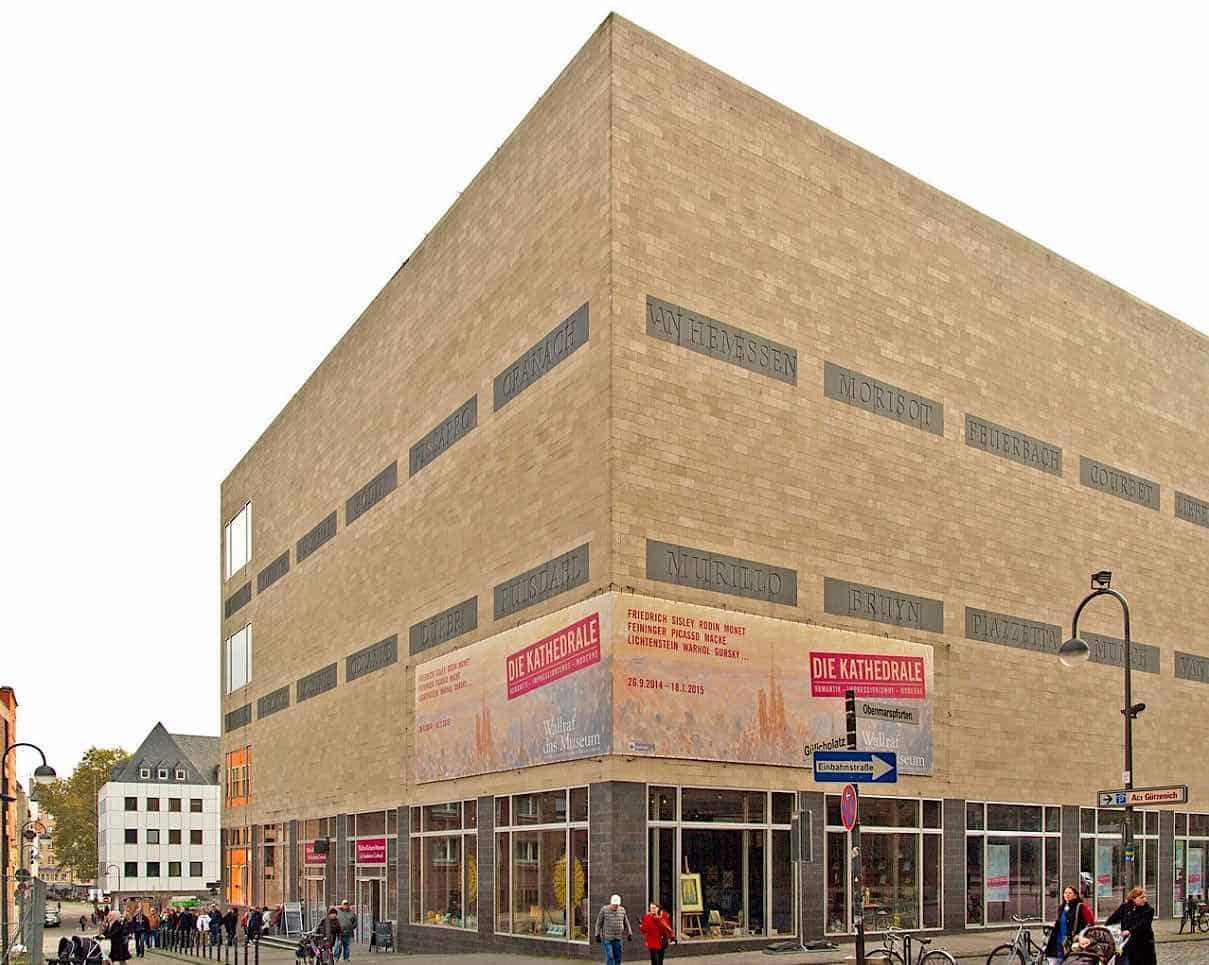
Wallraf-Richartz Museum
A treasure trove of Impressionist, Renaissance and Gothic works, art historians will want to head over to the Wallraf-Richartz Museum, also located in the old town. Opened in 1861 in a building donated by Johann Heinrich Richartz, the first exhibit was collection of medieval art donated to the city of Cologne by Franz Ferdinand Wallraf.
Today, the museum’s collection spans the ages from the early 1400’s through Impressionism and into Post-Impressionist paintings. Important works from the Baroque era include those of Rubens, Rembrandt and Bouche.
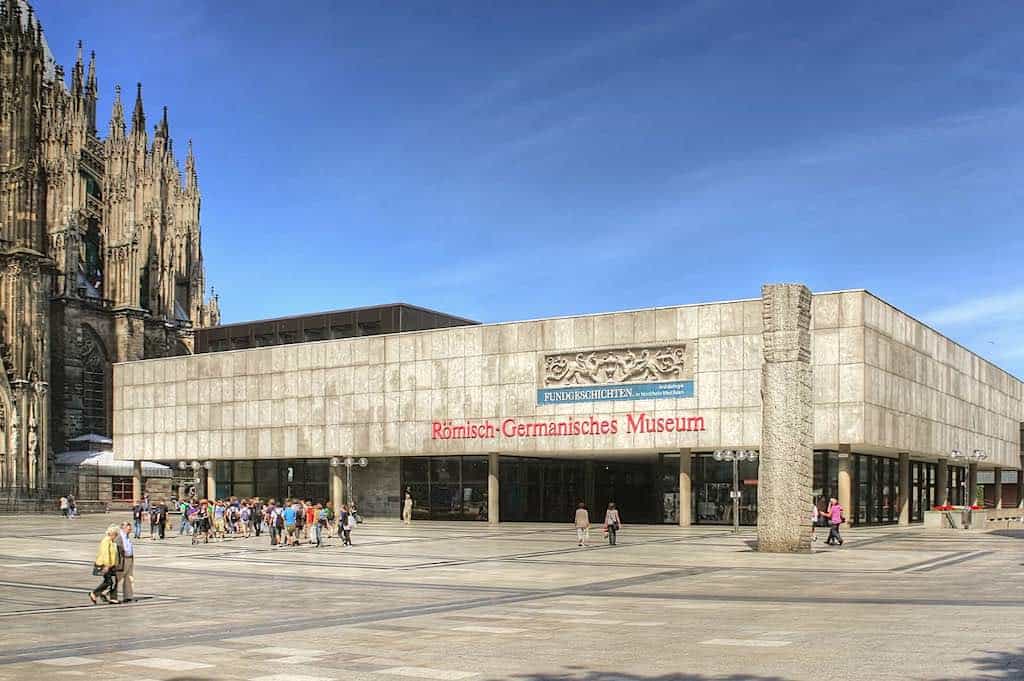
Roman-Germanic Museum
NOTE: The Roman-Germanic Museum is closed for a general renovation. Significant finds on the history of the city are moving and will be on show in the Belgian House (Cäcilienstraße 46, near Neumarkt) from spring 2019 onwards. The opening date will be announced in time.
This quirky museum in Cologne opened in 1974, over the site of a 3rd century Roman villa. While digging for an air raid shelter in 1941, construction workers discovered the remains of the villa, which included a perfectly preserved Dionysus mosaic in the villa’s basement.
Considered an archeological museum, the Roman-Germanic Museum on display are many artifacts found in this one Roman settlement area on the Rhine, including an extensive collection of Roman household items, coins, glassware and jewelry.
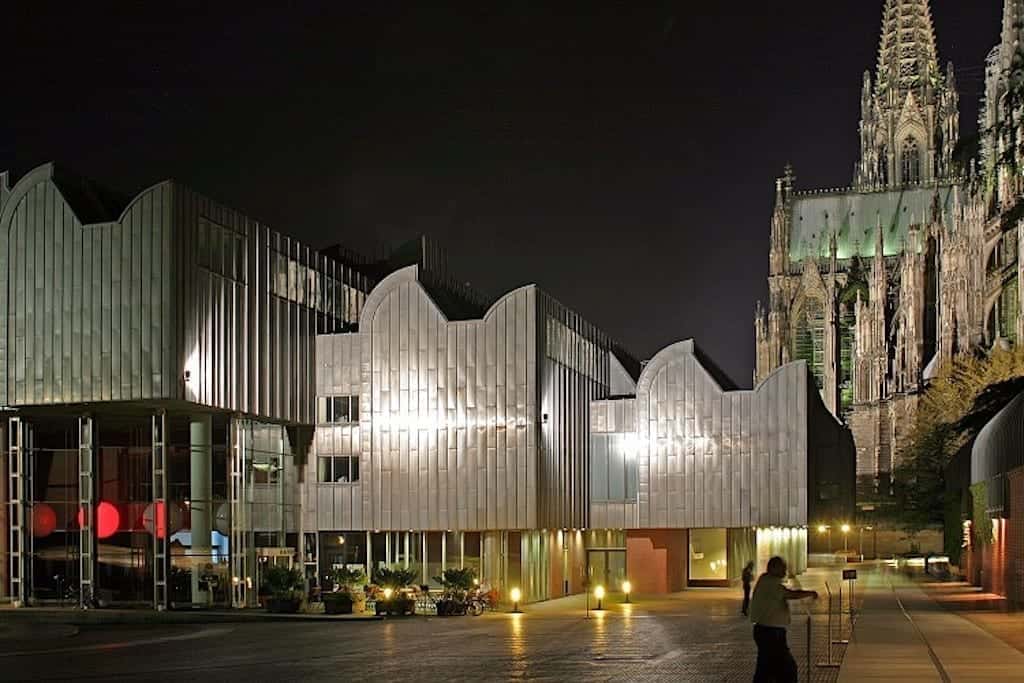
Museum Ludwig
Those interested in the largest Pop Art collection outside of the United States, be sure to stop by the Peter and Irene Ludwig Museum. Spanning the 20th century and into the 21st, the museum also displays Abstract and Surrealism period works by Roy Lichtenstein and Andy Warhol. Picasso fans should know that this museum holds one of Europe’s largest collections of works by Picasso.
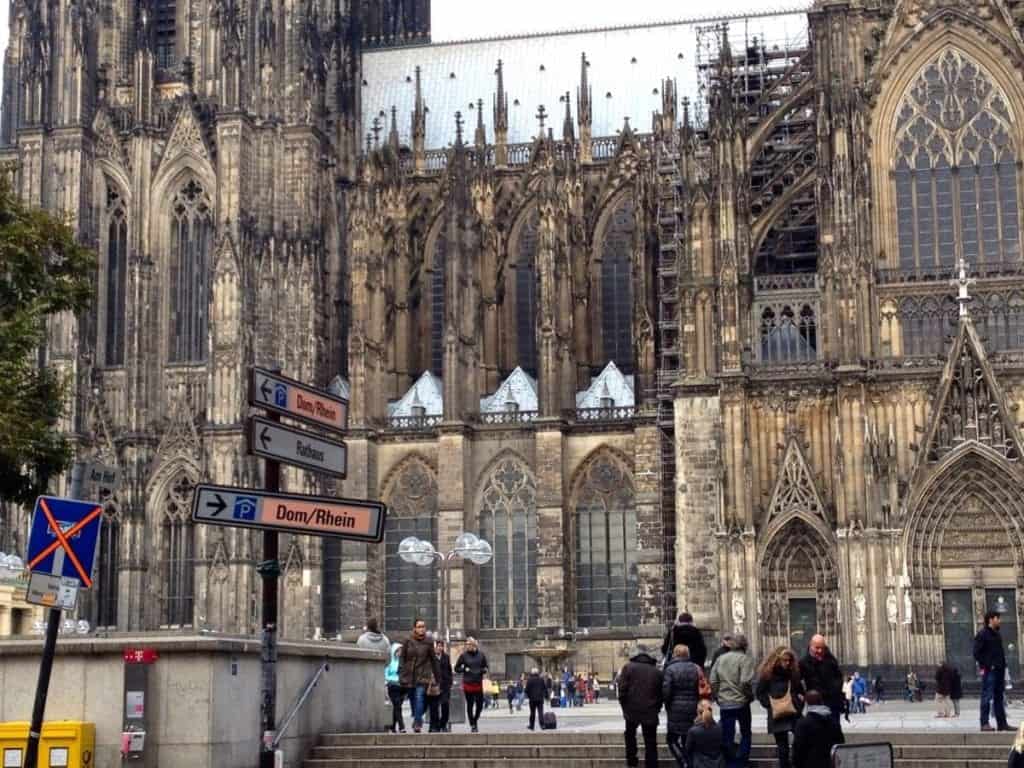
Cologne Cathedral Basement
Located in a really creepy-looking lower level is The Treasury. In this appropriately dimly-lit room, you’ll find all sorts of medieval coffins, dazzling jewels and gold artifacts, headstones from the 1300s. A visit to Cologne Cathedral isn’t complete without a stop in the lower level.
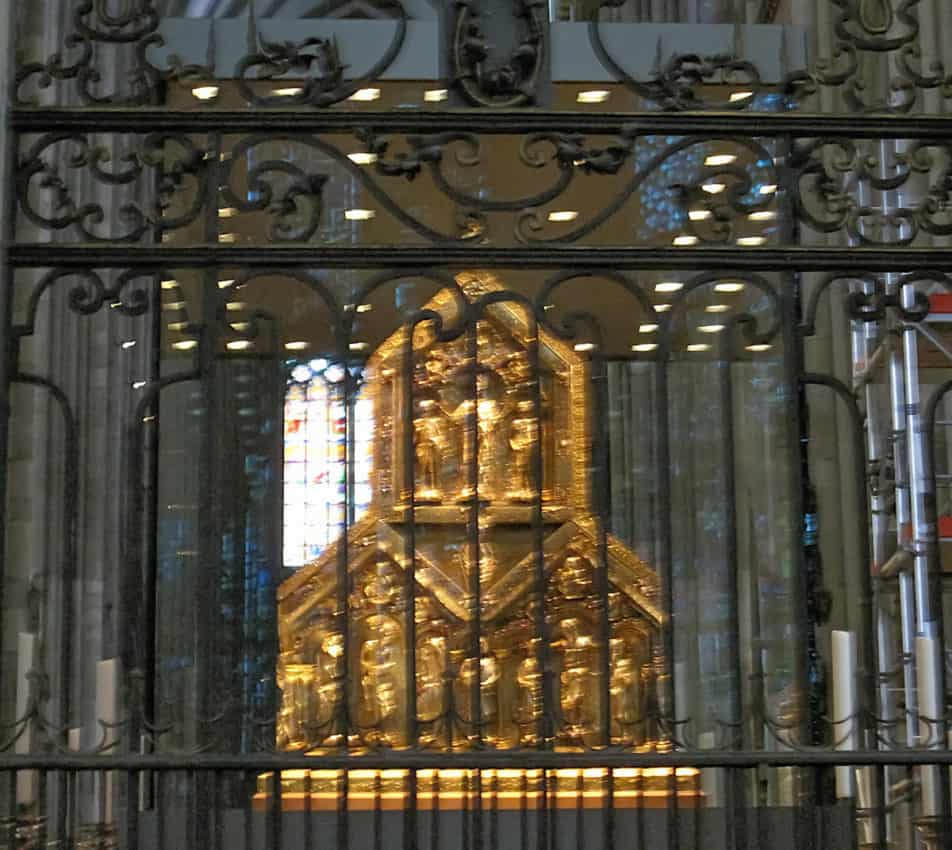
Inside the iron grate is said to contain the relics (bones) of the Three Magi (the Three Wise Men). It’s a spectacularly dazzling display of gold and silver, jewels and even raised depictions of people and scenes.
Definitely take some time if it’s not too crowded, to explore the other artifacts and stone gravesites in this lower level.
Did You Know?
Cologne was the site of the first Roman settlement and named Colonia Agrippina, named after the wife of Emperor Claudius. The name was eventually shortened to Colonia.
Plan Your Quirky Museum Visits in Cologne
Most river ships visit Cologne for only eight to ten hours. To hit the ground running, it’s a good idea to know in advance what museums and places of interest to visit while in port.
The ships dock right in front of the old town so consider a guided walking tour first and then head out on your own to see as many of Cologne’s fascinating and tempting museums as possible.
If you arrive by train, the Cathedral is just across the street from the enormous train station.
Check online for the latest opening times as well as admission fees, payable in Euro. But don’t miss these quirky museums in Cologne!
Read more: Rhine River cruise aboard CroisiEurope Douce France
Please Pin and Share to Your Favorite Boards!
